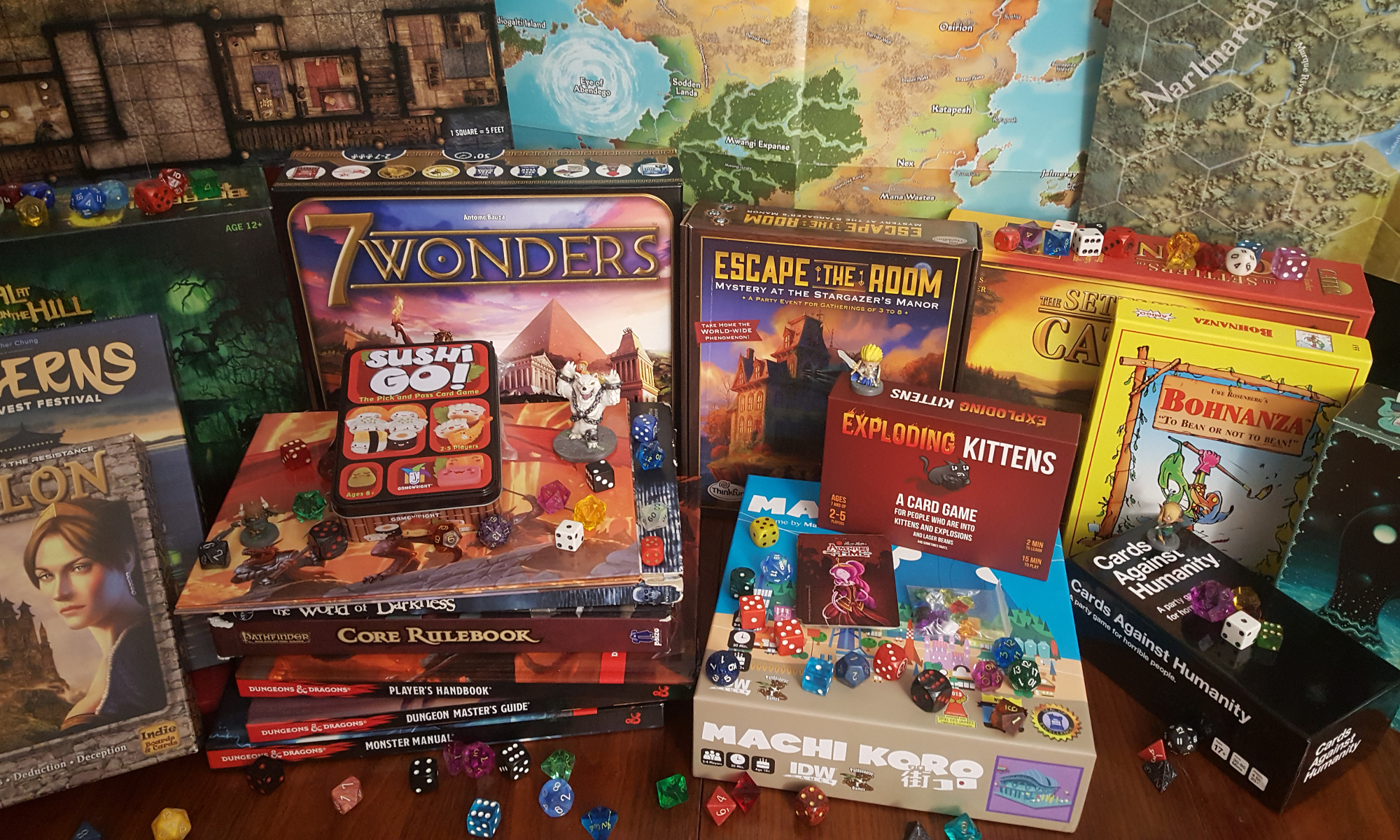Today on Save Vs. Rant, we’re discussing RPG rules we really like – rules that can make good games great as well as rules that make unique game systems unforgettable.
Part of what we discussed today was rules that can be ported to nearly any game. This is a very small category of rules, given that every rule you include in a game changes the flavor the game substantially. Even so, for most classic RPGs, you can include some variation on any or all of these:
Voluntary Dramatic Failure: A Dramatic Failure, in a system that does not already feature a mechanic for failing badly, should confer some significant drawback. While these should rarely be debilitating, they should deprive the character of a resource – especially one taken for granted. Examples include, being temporarily disarmed, having a bank error freeze your account, being caught in a lie that causes a substantial setback (or having a bluff work in an unexpectedly terrible way) or being injured in the process of failing some task.
In the Chronicles of Darkness, converting a regular Failure into a Dramatic Failure grants a beat, which is 1/5 of an Experience, which is, depending on what you do with it, progress toward improving your character. Frankly, under the pre-Chronicles World of Darkness rules, I had seen a grand total of 2 Dramatic Failures ever, but now, I see one every session or two (and, rarely, more than one in a single session).
In many games, giving an experience bonus for this breaks the balance of the game in unexpected ways. There are, however, other ways to reward this. As Jeremy mentioned, in D&D 5ed, he gives a point of Inspiration. Inspiration in 5ed gives Advantage on a roll, meaning that you’re banking failure for success later, which is a good trade for players, but not enormously unbalancing (especially since you can only have one point of Inspiration at a time).
Which brings us to another kind of rule.
Inspiration or Hero Points: If your game doesn’t already feature some sort of hero or inspiration point system, it is fairly simple to implement one. The absolute easiest system (and the one that is most applicable to the most games) is one wherein a player may have a single point of this “inspriation” or “heroism” banked, typically as a reward for roleplaying. This point may be spent after making a roll (but before learning the results, if that matters in your system) to reroll, taking the new result even if worse. This is almost never game breaking, regardless of the game you are playing, and if it doesn’t already have a system in place to encourage roleplaying and creative play, this is a great way to promote it.
Session Zero: Maybe the player characters have already met. If that’s the case, it’s nice to have a structured way of doing this. Having a standardized way of doing this is great.
There are a few ways to do this. The first is the Dresden Files way of doing it, which involves answering the questions “What Is Your First Story?”, “Whose Story Has Crossed Your Path?” and “Who Else’s Path Have You Crossed?” to interweave your story with everyone else’s. First, the character tells their first story, then they integrate someone else into it, then they guest star in someone else’s. The simplest way to do this is to go around the circle – you were involved in the story of the person to your left – go! Alternately, for a little more chaos, pass them out on index cards and, if anyone gets their own, they trade right until everyone has someone else’s story. This is best for a group that is comfortable with collaboration.
Another way to do Session Zero is a modified version of the way the Apocalypse Engine does. Give each character a couple of questions or statements to make about one of the other player characters and encourage your players to approach these statements with a “yes, and” attitude. “Your character has stolen something from one of the other characters. Why can’t they give it back?” “One of the other characters has seen your character naked. Where and why?” “One of the other characters frightens you, but not for an obvious reason. Who and why?” These sort of questions, especially when somewhat unexpected, can lead to interesting player collaboration. It’s important when you create these questions to keep them within the player’s comfort zones, however, since a question that is too far out can clash with a player’s expectation for their character.
One Unique Thing: Seriously. Don’t NOT do this. Unless your game has a theme of being banal – or is almost pure hack and slash – there is no reason that the player characters should not be truly unique in some way. Even if they all start out as level 0 peasant nobodies, give them something cool to hold on to. An heirloom, a special talent, a weird quirk – anything to make a character truly unique! Consider using this for important NPCs as well – it’s amazing what one unique quirk can do to make an otherwise forgettable character stand out!
The Last Words or Blaze of Glory: Character death is rarely the goal of an RPG. However, it can be a dramatic moment that makes for an amazing story, and there are a number of ways to make this even better. While the Blaze of Glory rule as stated in Savage Worlds Rifts might not be applicable to every game, some variation on it is appropriate. Unless it’s the theme of the game (or highly reversible), death should not normally happen arbitrarily in RPGs. Consider, though, the example of Galuf in Final Fantasy V: he stands alone against an overwhelming foe, and no amount of Phoenix Down or Elixirs can save him afterward. Giving a character one “last wind” to attempt a mighty feat (and, perhaps, even ensuring the victory of that mighty feat) can be the death concession that gives closure to the character.
Otherwise, even if you want death to be arbitrary and brutal, giving characters “the last word” when they die can be some consolation. Let them utter a warning, a statement or some last words. If the system allows for it, make these prophetic, valuable or, simple, profound by default. Consider even giving the player the luxury of dictating one change to the scene or events that, while not saving them from death, may avert the fate for their comrades. These sort of concessions can make the idea of losing a beloved character both more tolerable and more meaningful.
While rule changes can cause substantial upheaval in your game, adding the right rules or play guidelines to a game can make it pop and stand out to your players, and can make for unforgettable adventure and stories that you love to retell.

